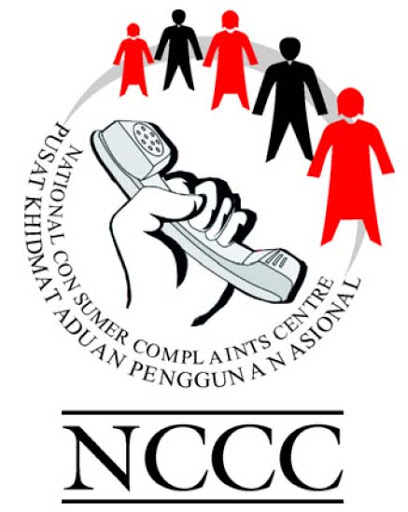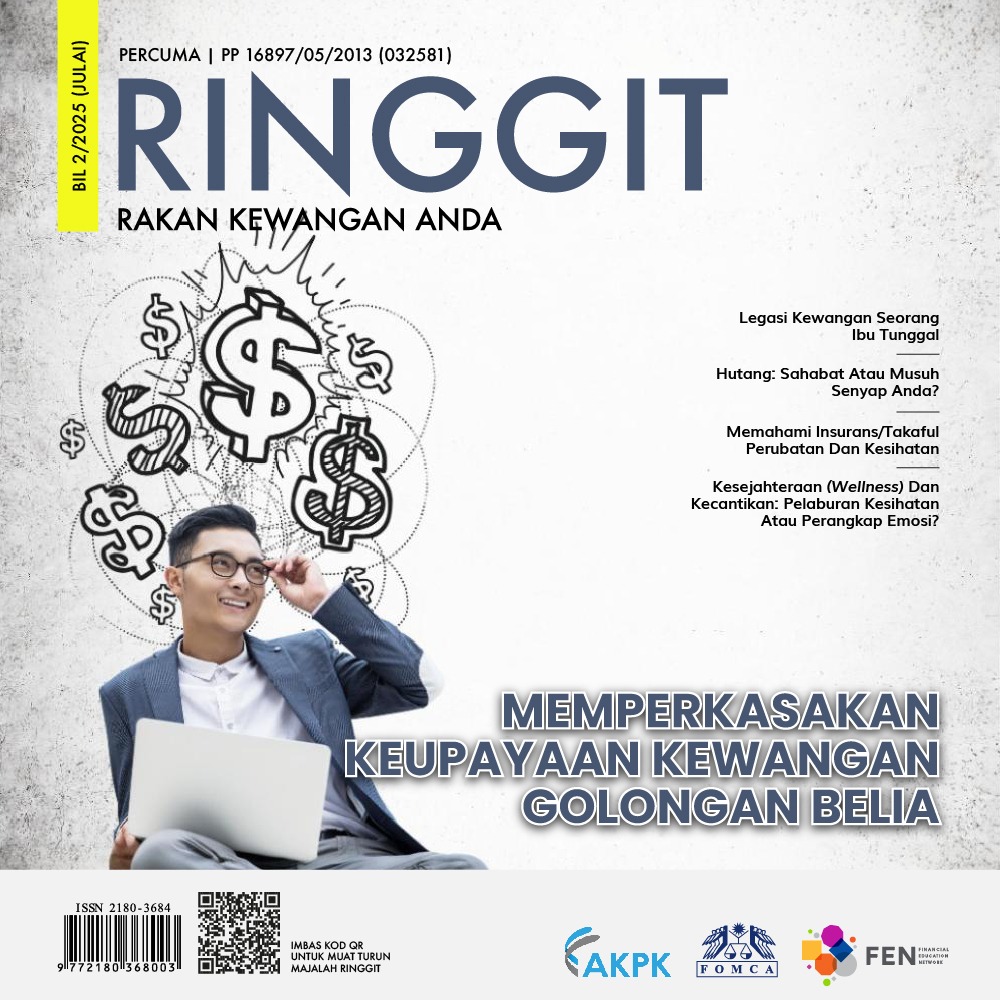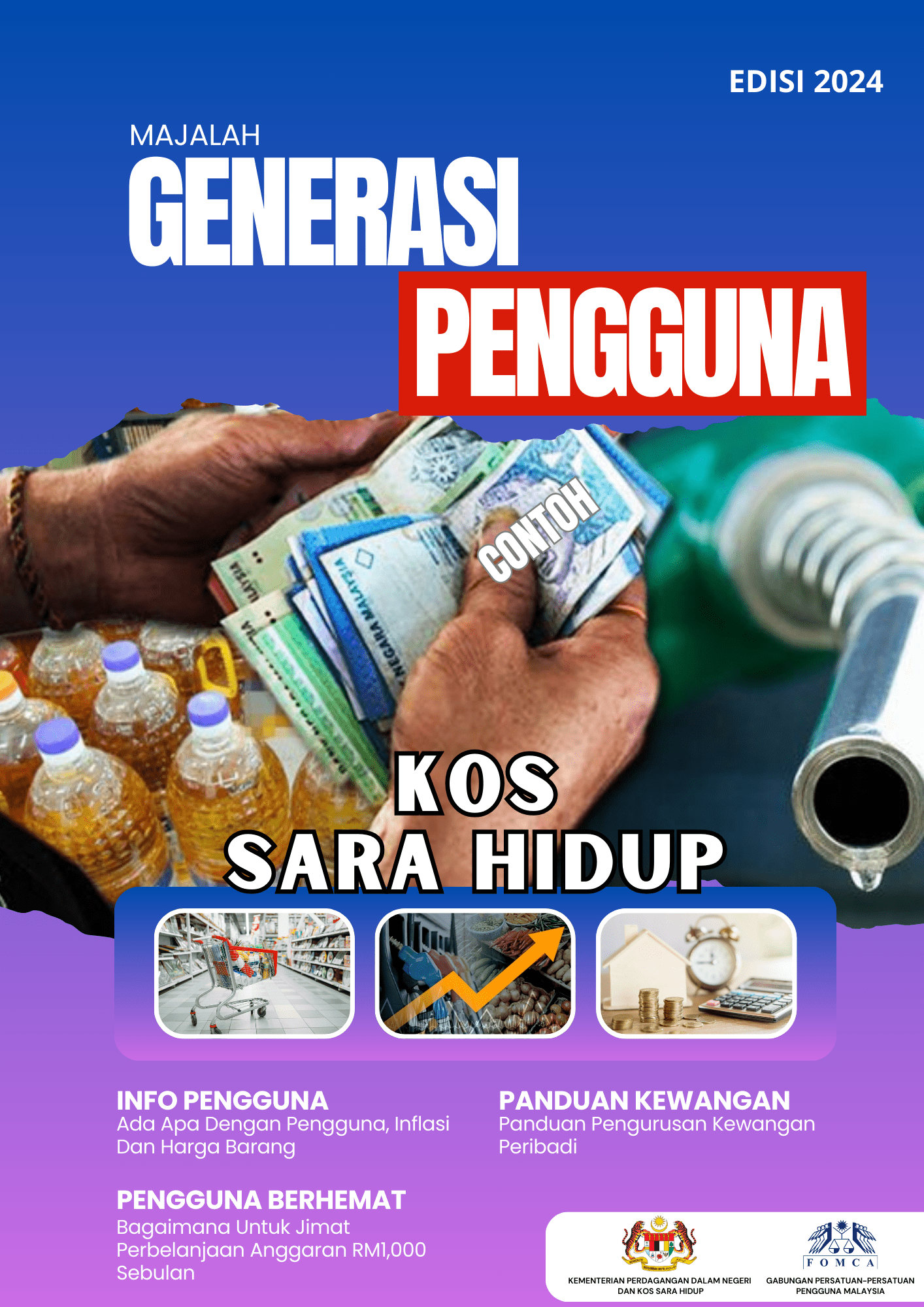- Details

 Sunday, 29 Nov 2020
Sunday, 29 Nov 2020
MORE Malaysians are shopping online these days and especially with Christmas next month, it’s always a good idea to be careful before you buy anything.
A total of 1,520 complaints on online shopping through social media were reported to the National Consumer Complaints Centre (NCCC) as of November this year.
Most claimed to be scammed by sellers, with the top types of items involved being electronic gadgets like handphones and power banks, clothes, watches and women’s accessories.
Another 1,646 complaints were against retailers and sellers of products related to Covid-19 like face masks, hand sanitisers and health supplements, the NCCC tells Sunday Star.
For purchases on social media, NCCC senior manager Baskaran Sithamparam says sellers on Facebook, Twitter and Instagram are not bound by refund or return policies like those who are on legitimate online marketplaces.
And this has led many consumers to be taken for a ride.
“Some did not receive the items they ordered at all or received only part of the item, ” he says.
- Details
 DATE OF RELEASE: 12 OCTOBER 2020
DATE OF RELEASE: 12 OCTOBER 2020
PRESS RELEASE: FOMCA ANNUAL CAMPAIGN - FINANCIAL LITERACY MONTH
October marks the “Financial Literacy Month” in Malaysia. The on-going event is organised by Federation of Malaysian Consumers Association (FOMCA). Having been first organised in 2011, the event is currently in its ninth year. The theme chosen is “Financial responsibility begins with me.”
The main emphasis of the event is to highlight the importance of financial literacy and teach households how to establish and maintain healthy financial habits.
Furthermore, it promotes national awareness and engagement campaigns through various community events.
The Covid-19 and Movement Control Order (MCO) has since been extended to December 2020 and with no ending of the MCO in sight. Workers are losing their jobs and are unable to find new jobs, having their incomes reduced and facing a bleak economic recovery in the future, especially for families facing the crisis with limited means and not having a clear picture of their employment future.
Many consumers might even have to dig into their personal savings or make borrowings from informal sources to meet their basic family expenses. They would probably be from the low-income and the unskilled, this would put tremendous pressures to meet their financial obligations.
Read more: PRESS RELEASE: FOMCA ANNUAL CAMPAIGN - FINANCIAL LITERACY MONTH
- Details
 Rabu | 9 September 2020
Rabu | 9 September 2020
SHAH ALAM - Gabungan Persatuan-Persatuan Pengguna Malaysia (Fomca) tidak bersetuju dengan cadangan kerajaan untuk mengenakan caj perkhidmatan kepada pembeli yang melakukan pembelian dalam talian.
Presidennya, Profesor Datuk Dr N Marimuthu berkata, cadangan berkenaan tidak patut dilaksanakan walaupun cadangan caj yang dikenakan adalah rendah iaitu sebanyak 0.02 peratus.
"Walaupun caj mungkin dikenakan serendah 20 sen bagi pembelian RM1,000 ke bawah tetapi ia juga akhirnya akan membebankan pengguna.
"Mengapa perlu ambil kesempatan untuk kenakan caj pembelian online ini sedangkan banyak lagi alternatif lain yang boleh digunakan kerajaan untuk mencari sumber kewangan," katanya ketika dihubungi Sinar Harian di sini semalam.
Beliau berkata demikian mengulas mengenai kenyataan Timbalan Menteri Komunikasi dan Multimedia, Datuk Zahidi Zainul Abidin hari ini bahawa kerajaan bercadang untuk mengenakan caj itu bagi pembelian dalam talian termasuk menerusi portal e-dagang, Lazada dan Shopee.
- Details
 KUALA LUMPUR, July 10
KUALA LUMPUR, July 10
Pengurusan Air Selangor Sdn Bhd (Air Selangor) should increase its water reserve margin for at least three days during the upcoming upgrading works to avoid water supply disruption which is expected to affect 420,000 user accounts.
Malaysian Water Forum (MWF) president Saral James Maniam, in calling for proactive action, said Air Selangor should also consider continual improvement planning ideas to be implemented.
“Stop burdening consumers and businesses from time to time. It is time to improve and learn from countries such as Singapore where consumers hardly face any water disruptions due to maintenance or upgrading of facilities by the authorities,” she said in a statement today.
According to Air Selangor, the Selangor River Treatment Plant (LRA) Phase 3 (LRA SSP3) upgrading works from July 14 to 17 were needed to replace several major pipelines to improve the water supply system and plant operation’s efficiency.
Read more: Press Release: Air Selangor should increase its water reserve margin - NGO
- Details
 6 Julai 2020
6 Julai 2020
Kita boleh hidup tanpa makanan lebih lama tetapi tanpa air kita hanya boleh hidup 3 sehingga 4 hari sahaja. Jika satu hari tiada air di rumah, pengguna akan mula bingung memikirkan cara untuk mandi, cuci pakaian, dan memasak apa lagi jika rumah kita mempunyai anak kecil dan warga emas yang sudah uzur.
Kebiasaannya sumber bekalan air ni boleh diperolehi dengan pelbagai cara sebagai contoh dengan galian air bawah tanah; ambil dan tapis dari air sungai atau laut, pam dipasang supaya boleh menarik air dari kawasan yang tinggi.
Bagaimana jika sumber bekalan air susah untuk didapati, sehingga terpaksa dicatu dan kualiti air pula tidak memenuhi piawaian minimum yang ditetapkan? Kita semua tahu biasanya perkara begini hanya berlaku di Afrika tetapi malangnya perkara ini turut berlaku di bumi Kelantan Darul Naim.
Penduduk Kota Bharu terpaksa mencatu bekalan air sehingga ada yang tidak mandi, semata-mata untuk penjimatan bekalan keperluan yang paling asas untuk manusia iaitu AIR. Situasi terbabit dialami penduduk sepanjang Ramadan lalu yang menyukarkan mereka untuk menjalani kehidupan dengan baik seperti yang telah dipetik dari akhbar Harian Metro yang bertarikh 18 Mei 2020.
Read more: KENYATAAN MEDIA: Jaminan Air Bersih di Kelantan Sebelum 2030
- Details
 09/07/2020 06:10 PM
09/07/2020 06:10 PM
KUALA LUMPUR, 9 Julai -- Gabungan Persatuan-persatuan Pengguna Malaysia (Fomca) meminta pengguna menghubungi bank masing-masing secepat mungkin untuk berunding sekiranya mereka tidak dapat membuat pembayaran pinjaman, apabila berakhirya tempoh moratorium kelak.
Presiden Fomca, Datuk Dr Marimuthu Nadason juga menasihatkan pengguna untuk tidak menunggu sehingga September untuk berkomunikasi dengan pihak bank dan mereka harus menjelaskan keadaan mereka secara jujur.
"Fomca berharap agar bank-bank bersimpati. Fomca yakin bahawa Bank Negara akan mengarahkan bank-bank untuk bertindak dengan penuh bertimbang rasa. Berundinglah dengan jujur untuk mencari jalan penyelesian terbaik demi masa depan.
"Namun, jika anda beranggapan tindakan bank-bank berkenaan tidak berhati perut, usah ragu-ragu untuk membuat aduan rasmi kepada Bank Negara. Menjadi harapan kami agar Bank Negara dapat bertindak dengan pantas dan berkesan menangani aduan dan isu masalah pengguna,” katanya dalam satu kenyataan di sini, hari ini.
Read more: Pasca Moratorium: Usah tunggu sehingga September untuk hubungi bank
- Details
 KUALA LUMPUR: The Federation of Malaysian Consumer Associations (FOMCA) has called upon the taxman to throw a lifeline to Malaysians by pushing back the due date for their income tax returns.
KUALA LUMPUR: The Federation of Malaysian Consumer Associations (FOMCA) has called upon the taxman to throw a lifeline to Malaysians by pushing back the due date for their income tax returns.
FOMCA president Datuk Dr Marimuthu Nadason said although the Inland Revenue Board (LHDN) has extended the deadline for submission of Income Tax Return Form (ITRF) BE from May 15 to June 30, many are beleaguered as they are still finding it difficult to make ends meet.
"It is going to be agony to the people with very little money in hand to come up with payment to LHDN in these trying times," he said in a statement, today.
He said the Covid-19 pandemic has affected every one, with many forced to take pay cuts and no-pay leave, while others lost their jobs altogether.
"People are just coming out from their homes and starting to restructure and looking into their livelihoods," he said.
As such, Marimuthu urged LHDN to push the deadline for ITRF submission to the end of September.
He added that with this extension, taxpayers would be able to focus on their livelihoods, such as looking for a job or several jobs to increase their incomes.
Read more: PRESS RELEASE: 'MSIANS NOT FINANCIALLY READY, PUSH BACK INCOME TAX RETURN DEADLINE'
- Details
 June 20, 2020 @ 6:57pm
June 20, 2020 @ 6:57pm
KUALA LUMPUR: The RM942 million assistance under Bantuan Prihatin Elektrik will not only ease financial burden among the people but also gave them time to restore their monetary stability which was disrupted by the Covid-19 pandemic.
Federation of Malaysian of Consumers Associations (Fomca) chief operating officer Saravanan Thambirajah described the additional assistance as timely and that it was much needed by the people during this challenging period.
"Fomca would like to the Prime Minister, Ministry of Energy and Natural Resource, Energy Commission and Tenaga Nasional Bhd (TNB) for listening to the grouses of consumers.
"This assistance is timely and is a much needed for the rakyat during this trying time.
"Fomca, however, also would like to suggest to the government to conduct stakeholders engagement in future to get their opinions to get better picture of the problems," said Saravanan, who is also the Water and Energy Consumers Associations of Malaysia (WECAM) president.
Fomca also called on the government to review the current tariff block structure which the association deems as being outdated.
Read more: PRESS RELEASE: BANTUAN PRIHATIN ELEKTRIK WILL ADDRESS CONSUMERS' FINANCIAL BURDEN
- Details
 In 1972, after the first day of the United Nations Conference on Human Environment, it was decided that there would be a day declared as World Environment Day. Since 1974, World Environment Day has become a global celebration with a common theme of "Only One Earth" to signify the importance of protecting the one and only place we call home.
In 1972, after the first day of the United Nations Conference on Human Environment, it was decided that there would be a day declared as World Environment Day. Since 1974, World Environment Day has become a global celebration with a common theme of "Only One Earth" to signify the importance of protecting the one and only place we call home.
This initiative also aligns well with our No 13 of our Sustainable Development Goal (SDG), which is climate action. Environment Day is celebrated on annually on June 5 and aims to promote awareness to protect our nature and biodiversity. The theme for the year 2020 is "Biodiversity" with the tagline "Time for Nature". What do we mean by biodiversity?
At its root, biodiversity basically means the variation of all the species from various habitats and terrains. Biodiversity is not a list of plants and animals, but a series of relationships in a complex web. When one part disappears, every other part of this complex chain is affected.
Biodiversity comprises three levels of diversity, which are genetic diversity, species diversity and ecosystem diversity. Thus, it is the foundation for a healthy planet and healthy people. Diverse ecosystems are more resilient and better able to recover from stress such as drought or human-induced habitat encroachment such as over-grazing.
Read more: PRESS RELEASE: REMEMBERING THE WORLD ENVIRONMENT DAY
- Details
DATE OF RELEASE: 18 MAY 2020
Covid -19 pandemic has indeed created a huge challenge to all of us in every aspect of our lives including socially and economically. The government has come out with some plans to assist the people. Unfortunately not all affected people seem to benefit from the Prihatin Economic Stimulus Package and the Prihatin SME Economic Stimulus Package
Bank Negara Malaysia (BNM) has declared a 6 months moratorium for all borrowers from housing loans and car loans to as well as fixed rate Islamic financing. Inevitably, the Minister of Finance had to coax the Banks to defer the compound interest to be accrued to the principal. At the time when people are struggling to make ends meet, banks should be more compassionate instead focusing just on into profit making. The Movement Control Order (MCO) which was implemented on 18 March has been extended till 9th June 2020. Some places have been placed under Enhanced Movement Control Order (EMCO).
Throughout this ordeal of MCO and EMCO, more than one million people have lost their jobs and many others also had to take no pay leave or reduced pay. Financial constraints have caused severe family tribulations. This was proven when MCO was lifted to Conditional Movement Control Order (CMCO) many people rushed to pawn shops. The queues at the pawn shops throughout the nation were very long. Many people were there to pawn their jewelleries or to renew their items pawned. Pawn shops are known as the poor men’s bank as many customers are from the lower income bracket (B40) and some from the middle income bracket (M40). Many throng to these shops as they faced financial constraints during this challenging time. It clearly shows that the government aid is relatively insufficient to make ends meet. To rub salt into the wound, some pawn brokers went on to charge on their customer interests despite the fact that the Minister of Housing and Local Government had declared that Pawn Brokers have deferred the interest during the MCO, from March 18 to May 12.
Subcategories
Page 2 of 3
























